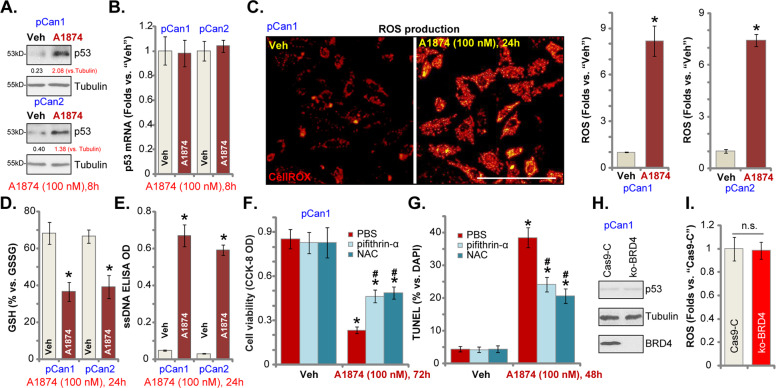Fig. 4. A1874 induces p53 protein stabilization and oxidative injury in colon cancer cells.
The primary human colon cancer cells, pCan1 and pCan2, were treated with A1874 (100 nM) or the vehicle control (“Veh”, 0.2% of DMSO). Cells were further cultured in complete medium for applied time periods, and then expressions of p53 protein (a) and mRNA (b) were shown; The CellROX intensity (c), the GSH/GSSG ratio (d) and the single strand DNA (ssDNA) contents (e) were tested as well. The pCan1 cells were pretreated for 1 h with the antioxidant N-acetyl-cysteine (NAC, 400 μM) or the p53 inhibitor pifithrin-α (10 μM), followed by A1874 (100 nM) stimulation for another 48–72 h.Then cell viability was tested by CCK-8 assay (f), with cell apoptosis examined by nuclear TUNEL staining assay (g). Stable pCan1 cells with CRISPR/Cas9-BRD4-KO-GFP construct (“ko-BRD4” cells) or control cells with CRISPR/Cas9 empty vector (“Cas9-C”) were cultured for 24 h, and then expression of listed proteins (h) and ROS contents (CellROX intensity, i) were tested. Expression of listed proteins was quantified and normalized to the loading control (a). Data were presented as mean ± standard deviation (SD, n = 5). *P < 0.05 vs. “Veh” cells. #P < 0.05 vs. A1874 treatment (f, g). Experiments in this figure were repeated three times, and similar results were obtained. Bar = 100 μm (c). “n.s.” stands for no statistic difference (i).

